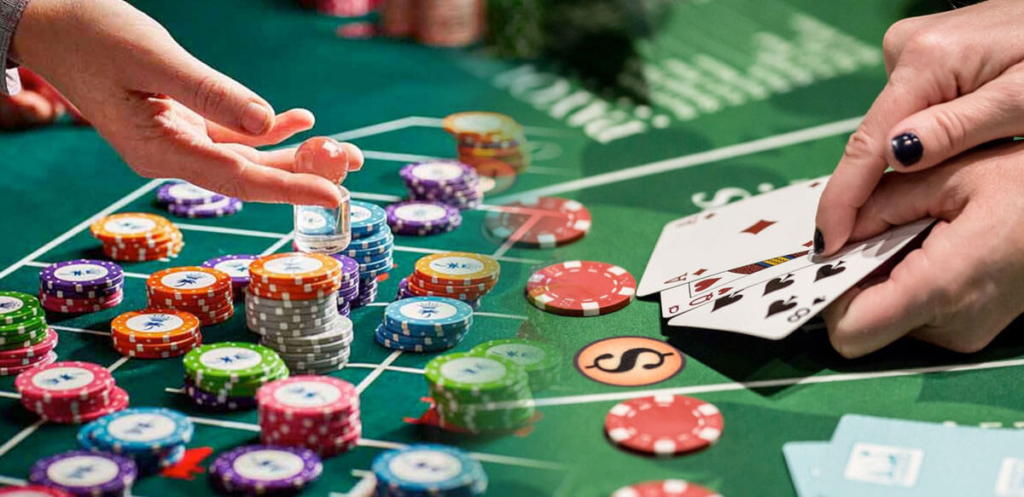Introduction

Betting and gambling are terms often used interchangeably, but they represent distinct activities in the world of chance and risk. While both involve wagering money or valuables on an outcome, the nature of the activities, the context, and the mindset of participants vary significantly. In this short article, we shall explore the differences between betting and gambling, the motivations behind each, and the potential impacts on individuals and society.
Betting: The Informed Wager
Betting typically involves a degree of skill, knowledge, or comprehension of the event or activity upon which a wager is placed PRO88. It is often associated with games of skill or strategic decision-making, where individuals make informed judgments based on the comprehension of the odds, statistics, or the event’s dynamics.
- Sports Betting: Sports betting is a prominent exemplory case of betting. In this context, individuals place wagers on the outcomes of sports, such as football matches, horse races, or basketball games. Understanding of the teams, players, and past performance can influence a bettor’s decisions.
- Poker: Poker is another form of betting where skill and strategy play an important role. Players use their comprehension of the overall game, their opponents, and mathematical probability to produce informed decisions about when to bet, raise, or fold.
- Financial Betting: In financial markets, individuals make informed bets on the price movements of stocks, currencies, commodities, and more. Traders analyze economic data and market trends to produce financial predictions.
In betting, there’s an element of informed decision-making, and participants often perceive themselves as having some amount of control over the outcome. Strategies, odds, and understanding of the topic matter are essential components of the betting experience.
Gambling: The Games of Chance
Gambling, on one other hand, is more closely associated with games of chance, where outcomes are determined by random events or luck. While there could be betting involved in gambling, the email address details are predominantly beyond the participant’s control.
- Slot Machines: Slot machines certainly are a classic exemplory case of gambling. Players insert coins or tokens and pull a lever, but the outcome is entirely random. Luck plays an important role in whether a player wins or loses.
- Lotteries: Lotteries are games of chance by which participants purchase tickets with numbers, and the winning numbers are drawn at random. The end result is entirely unpredictable.
- Roulette: In roulette, players bet on where a baseball will land on a spinning wheel. The results is based on chance and the laws of physics, not skill or knowledge.
In gambling, the component of luck is predominant, and participants generally do not need control over the outcomes. The appeal of gambling often is based on the excitement and thrill of unpredictability.
Motivations and Impact
The motivations behind betting and gambling can differ significantly:
- Betting is often motivated by way of a desire to utilize knowledge, skill, and strategy to get an edge. It could be seen as a questionnaire of entertainment that involves calculated risks. Success in betting is typically associated with understanding and expertise.
- Gambling, on one other hand, may be driven by the thrill of chance and the prospect of windfall gains. The allure of hitting the jackpot or winning a lottery can be irresistible. However, gambling posesses higher danger of financial loss because reliance on luck.
Social and Economic Impacts
Both betting and gambling have social and economic implications:
- Entertainment: Betting and gambling can be enjoyable pastimes for people who participate responsibly. They provide entertainment, excitement, and the chance of winning.
- Harmful Consequences: Excessive betting or gambling can result in addiction, financial difficulties, and strained relationships. Gambling addiction, particularly, is a recognized mental health issue that affects individuals and families.
- Regulation and Responsible Gaming: Many countries have implemented regulations to make sure that betting and gambling are conducted fairly and responsibly. Responsible gaming initiatives include self-exclusion programs, age restrictions, and support for anyone struggling with addiction.
Conclusion
Betting and gambling are related activities, but they represent different approaches to the world of chance and risk. Betting involves skill and knowledge, often requiring an comprehension of the topic matter and strategy. On the other hand, gambling relies primarily on luck and random events, with little room for informed decision-making.
Understanding the distinctions between betting and gambling is very important to individuals who wish to participate in these activities responsibly. Whether it’s an ideal poker game or a spin of the roulette wheel, recognizing the nature of the activity and its potential consequences can help participants make informed choices and enjoy their experience while minimizing risks. Responsible participation in both betting and gambling is key to ensuring why these activities remain sourced elements of entertainment rather than factors behind harm.